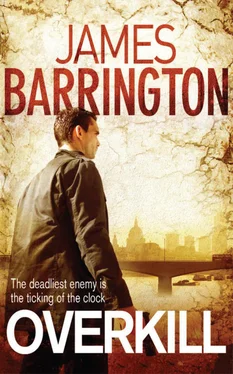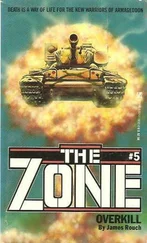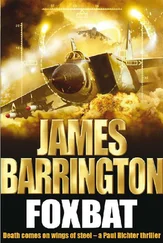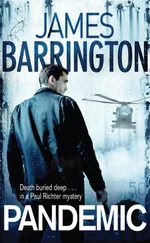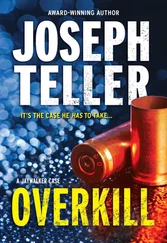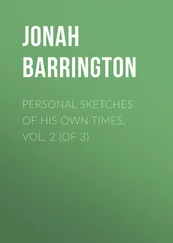‘Why should he?’ the President asked. ‘He doesn’t know yet that Podstava has been discovered. Or does he?’
‘What have you decided to do, Comrade President?’ Baratov asked.
‘Nothing,’ the President replied. ‘We are going to do nothing at all for the moment. I have used the hot-line telex to tell the American President that I have no knowledge of this alleged assault, which is very nearly true. We are not going to take any military measures to respond to the American sabre-rattling.’
‘Is that not dangerous?’ Baratov asked. ‘If we don’t respond, we are defenceless.’
‘Defenceless against what?’ Yevgeni Ryzhkov asked. ‘The one thing we do know about the Americans is that they would never dare initiate a first-strike. Let them fly their bombers in small circles over the Atlantic and Pacific, let them sneak their nuclear submarines around. There are two very good reasons not to respond. If we initiate any military actions, the Americans might use that as an excuse to launch a pre-emptive strike against us.’
‘And the second reason, Comrade President?’
‘According to General Sokolov, ultimate control of Podstava lies in the hands of one man – Minister Dmitri Trushenko. If we can’t find him, he will presumably activate it when his own timetable so dictates. So, if we can’t find a way of stopping it, we are going to have to let Podstava run its course.’
Anton Kirov
Richter lay crushed up against the front of the bridge, his left shoulder against the base of the binnacle, trying to get his arms working. He had no idea where the Hockler had fallen, but he still had the Smith and Wesson and he was expecting the Spetsnaz trooper to push through the bridge door any second to inspect his handiwork. Richter’s right arm seemed heavy, almost too heavy to move, and it took all his strength to seize the butt of the revolver and pull it out. He dragged the pistol on to his chest, panting from the effort.
The bridge door flew open, and Richter struggled to lift the Smith into a firing position. But he was too late – aeons too late. Back-lit by the passageway lighting, the Russian looked down at him over the barrel of his Kalashnikov. ‘ Das vidaniya – goodbye,’ the Russian said, walked over to Richter and tucked the assault rifle more tightly into his shoulder.
Richter tried to lift the Smith, but the pistol was just too heavy. He tensed, then heard the crash of a shot, but from his right. The Russian suddenly had no head, just shoulders and a spray of blood. He toppled to Richter’s left and fell sprawling on the bridge floor. A small, black-suited figure ran from the bridge wing and knelt beside Richter. ‘You OK?’
‘Don’t know. Chest.’ It was all Richter could do to speak. His chest didn’t hurt – it was just numb, and he couldn’t seem to draw breath. The SAS trooper felt cautiously under the vest, which Richter hoped had worked as advertised, then pulled out his hand and waved it in front of Richter’s face. ‘No blood,’ he said.
‘Good. What gun?’ Richter gestured feebly at the body lying beside him.
‘Arwen,’ the SAS trooper replied. ‘Buckshot, more or less. You should see what it does with a chest shot.’
‘No thanks.’ Richter’s breath was coming more easily, and he still had work to do. ‘Help me up,’ he said.
The SAS trooper checked round the bridge and down the passageway before lowering the Arwen to the floor. With his help and the support of the binnacle, Richter got back on his feet. He felt as if he’d been through a combine harvester. The trooper picked up his Arwen, moved across the bridge and then returned with Richter’s Hockler. ‘You OK now?’
‘Yes,’ Richter said. ‘I owe you. Just give me a minute to get my breath.’
‘All part of the service. You’re Beatty right?’ Richter nodded. ‘Did you get to the Radio Room?’
Richter shook his head. ‘I didn’t get that far.’
‘Right. Follow me.’
Richter followed him off the bridge and down the passageway. There were three doors off the passageway all open. They checked each room, but found them all empty. None of them was the Radio Room. A steel staircase led to the deck below. The trooper crouched flat on the floor, peering down the staircase and looking for any opposition. Satisfied, he stood up and made his way slowly down. On the next deck down there were only two doors on opposite sides of the passageway, one of which bore lightning-flash symbols indicative of high voltages and the Cyrillic legend ‘Радио Офис’ – Radio Office.
Richter pointed at it. The two men moved to the door and took up positions on either side of it. Richter stretched out his arm, turned the door handle gently, and then pulled. The door didn’t budge, but suddenly the clamour of an automatic weapon erupted and a pattern of holes appeared, ripped through the wooden door at chest height.
They flattened themselves against the steel bulkhead. Richter caught sight of a movement opposite, and saw the other door start to open. He was still slow and hurting, but he brought up the Heckler & Koch and selected auto. As the muzzle of the Kalashnikov turned towards them, Richter opened up. The machine pistol took just under a second to fire the eight 9mm rounds he had left in the magazine. A tight pattern appeared in the wooden door, and the AK47 dropped. As Richter dropped the magazine out of the Hockler and inserted another one from his belt pouch, the SAS trooper took out his Browning, ran over and kicked open the door. He slid inside, and Richter heard a single shot.
‘No problem,’ he said, as he emerged and took up his position again on the other side of the Radio Office door. ‘Nice shooting.’
The trooper opened the magazine on the Arwen and inserted two shells from his belt pouch. ‘Stand back,’ he said. He stepped back into the passageway, took aim at the bottom steel hinge on the door and fired. Richter had time to see that the hinge remained more or less intact, but the wood on the door beside it had simply disintegrated, before he fired again, at the top hinge. The door toppled slowly outwards into the passageway, and as it fell the trooper lobbed a stun grenade into the Radio Room.
Three seconds later they were inside. The sole occupant was lying in a corner, AK47 beside him. He was alive, but the stun grenade had ensured that he would take no part in the proceedings for a while. The trooper pulled out his Browning, but Richter stopped him. ‘I have to ask him if he used the radio,’ he said.
Richter picked up the Kalashnikov, put one round through each radio set, extracted the magazine and cleared the breech. The communications equipment installed was comprehensive, but in no way unusual. All the radio sets had appeared to be switched on, but again that was probably normal practice. Richter’s hope was that the man lying in the corner was simply a crewmember who had taken refuge in the Radio Office, and not the ship’s radio operator. What bothered him was the unmade cot in one corner of the room.
The Russian showed signs of coming round, and Richter knelt beside him. ‘Listen to me,’ he said, in Russian. ‘Can you hear me?’ The Russian shook his head, trying to clear the fog. ‘Did you signal Moscow?’
‘What?’
‘Did you signal Moscow?’ Richter repeated.
The Spetsnaz trooper looked up at Richter then, his pale blue eyes defiant. ‘Yes,’ he said. ‘As soon as you attacked. I sleep here, and those are my orders.’
Richter stood up. ‘I’ve got to get to the hold,’ he said. ‘Deal with him.’
As Richter picked up his Heckler & Koch and walked out of the Radio Office and down the stairs, he heard another shot from the trooper’s Browning. ‘Ross, this is Beatty,’ Richter said into the microphone.
Читать дальше
